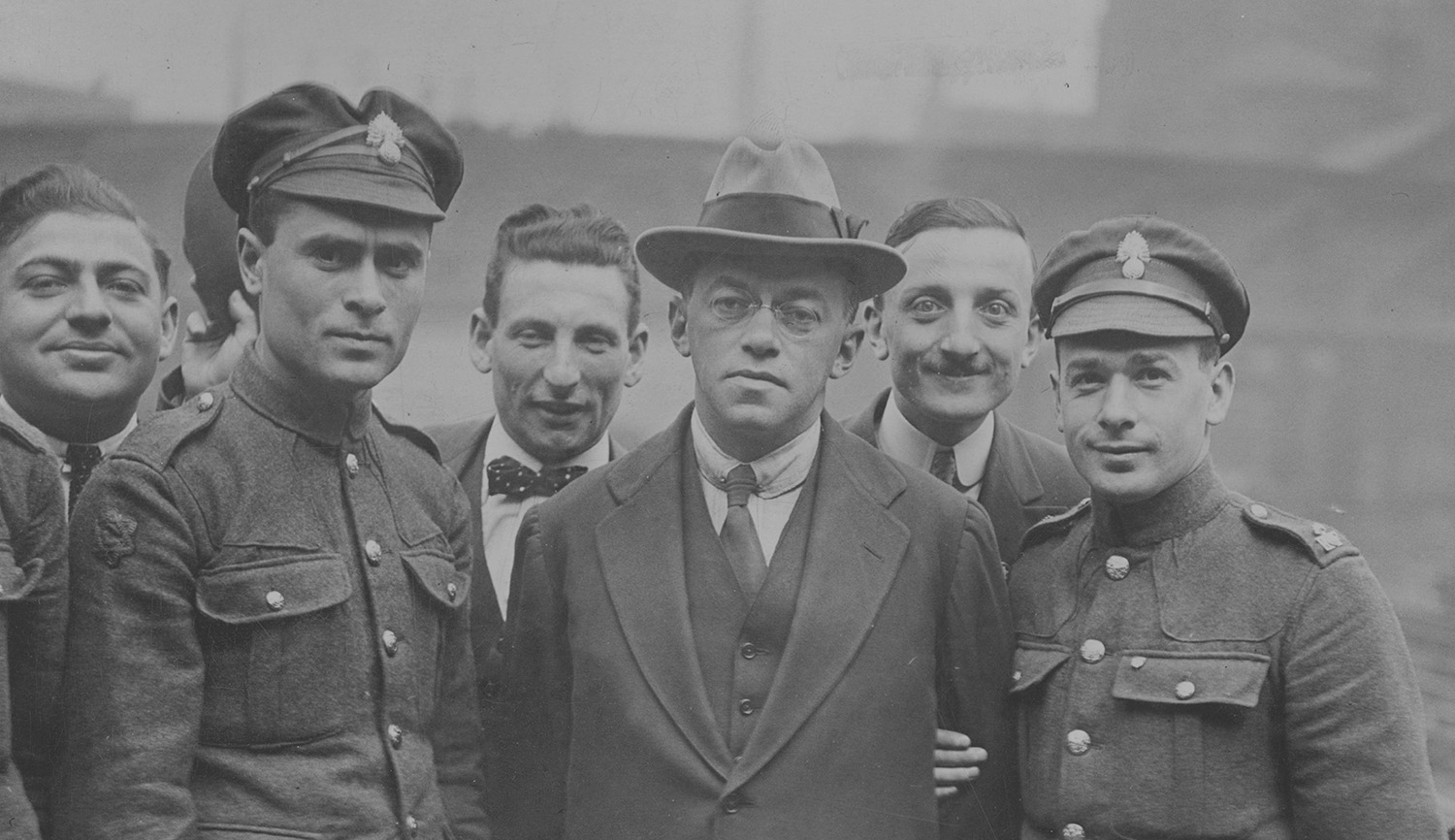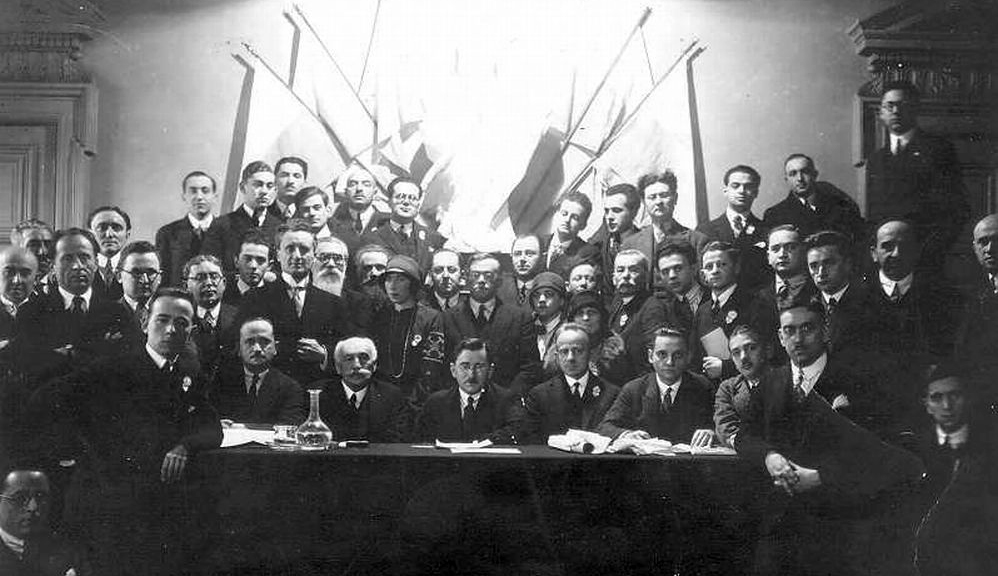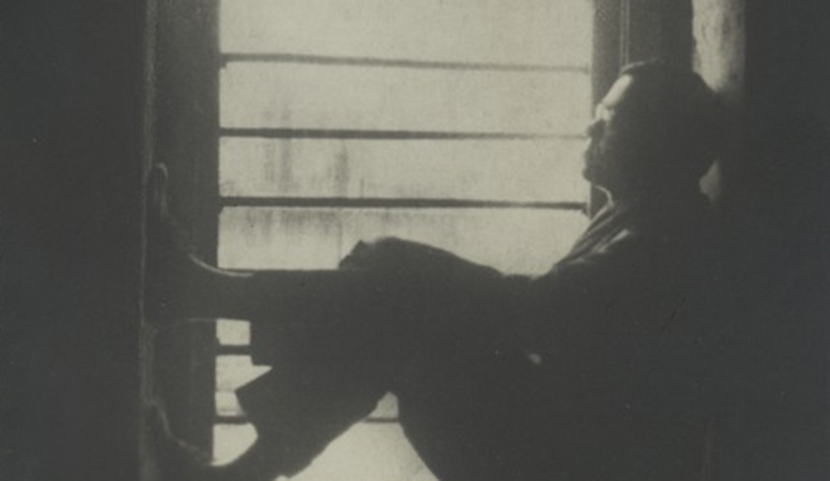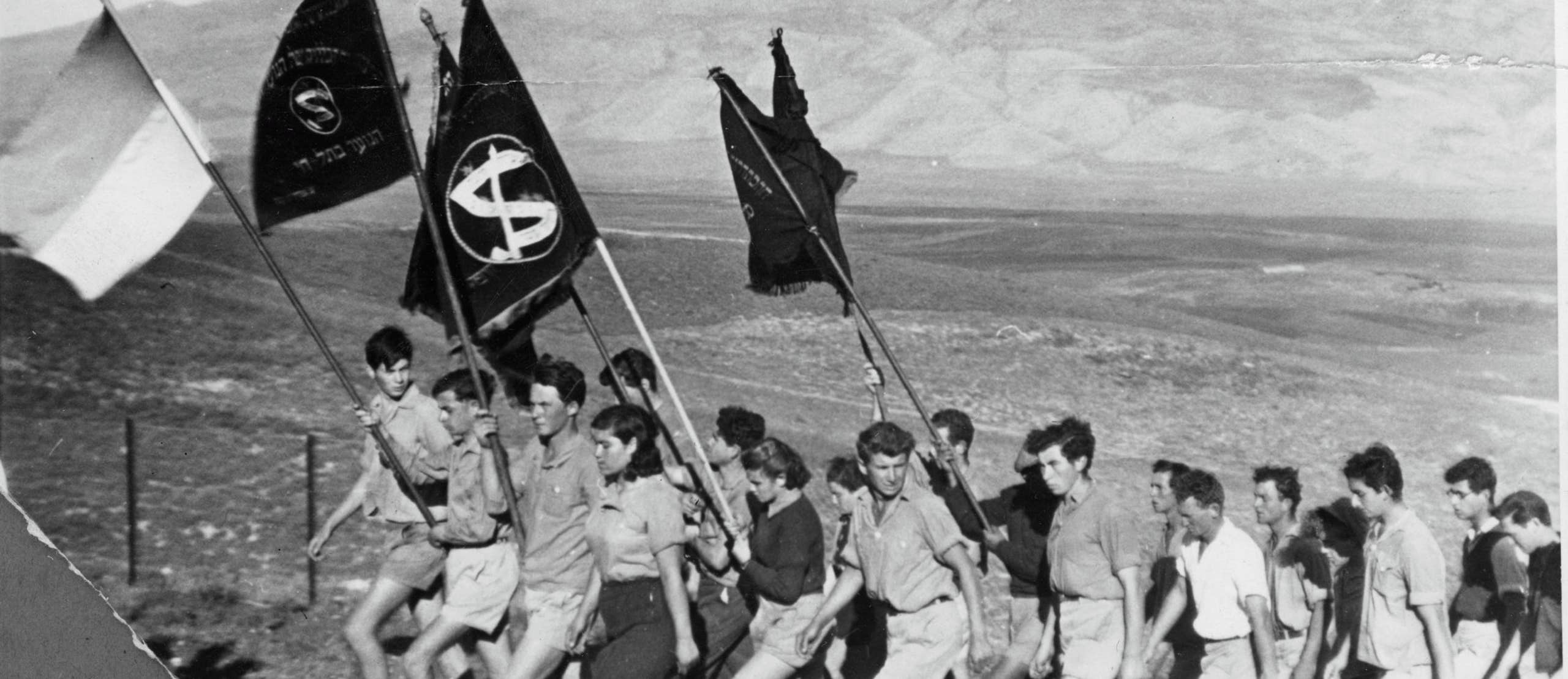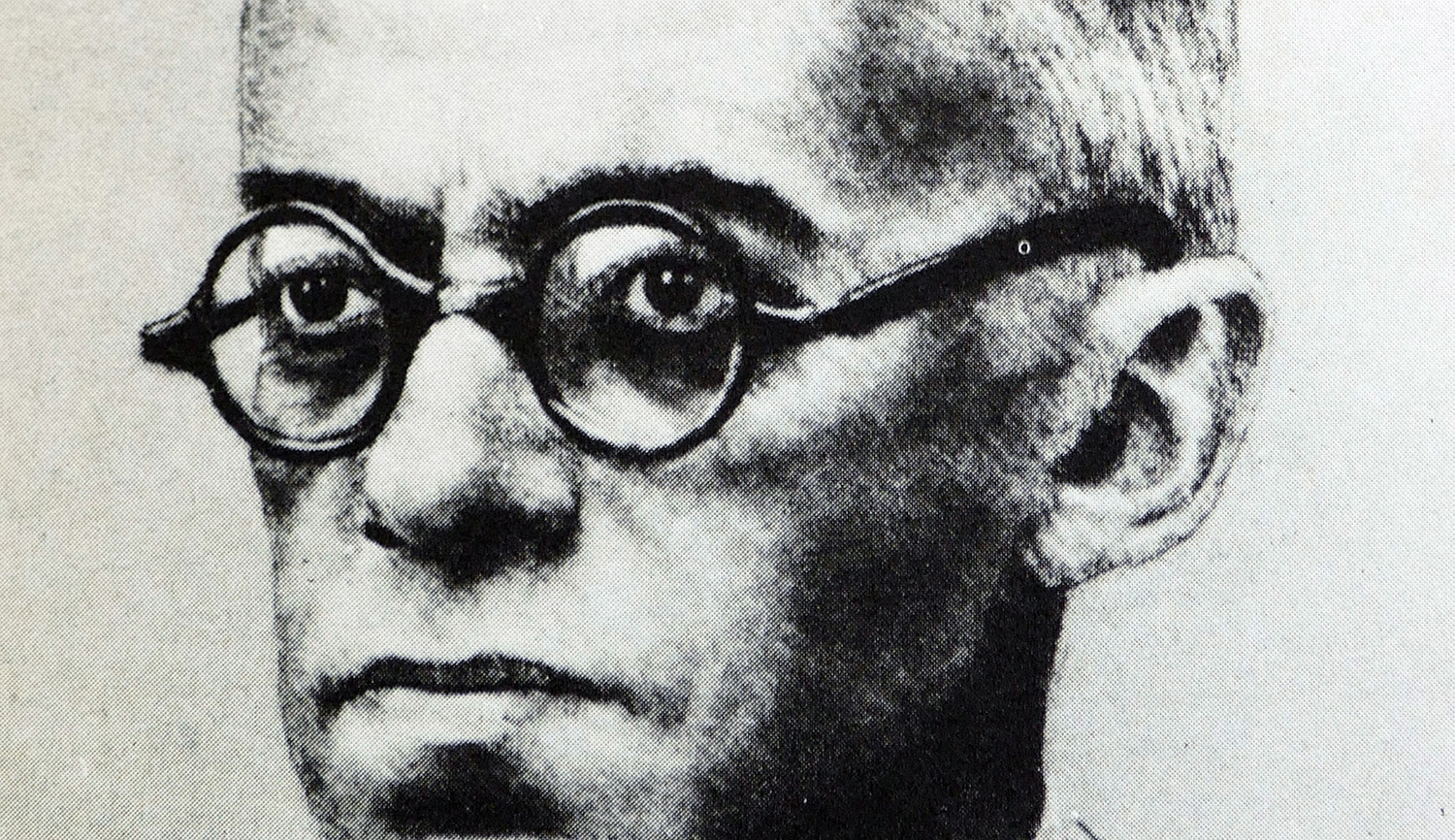In “The Jabotinsky Paradox,” Avi Shilon writes that Jabotinsky had “one of the subtlest and most insightful minds in the history of Zionism.” He was “highly sophisticated” in his political thinking, with a “unique worldview” that was simultaneously “bold and sober.” But Shilon notes that Jabotinsky was a poet before he was a politician and suggests that Jabotinsky’s literary efforts—including two novels written at the height of his Zionist activities in the 1920s and 1930s—diverted him from a greater role in Zionism.
It is “hard to think of another [Zionist leader],” Shilon writes, “who devoted so much time to artistic pursuits alongside his political activities.” And thus, the “diffusion of his energy and focus was in part what prevented Jabotinsky from capturing the leadership of the Zionist movement.”
This is one of many incisive assertions Shilon makes in his valuable essay. One might argue that his contention finds support in the fact that Jabotinsky published his first novel, Samson, in 1926, the year following his creation of the Revisionist Zionist Party, and his second novel, The Five, in 1935, the year he formed the New Zionist Organization. Why was Jabotinsky writing novels at the same time he was trying to lead Zionism in a dramatically different direction, away from what he saw as Chaim Weizmann’s too-cautious World Zionist Organization and David Ben-Gurion’s too-socialist Jewish Agency?
To answer that question, it is useful to explore briefly Jabotinsky’s two novels, and consider how they related to his political activities.
The story of Samson is found in the book of Judges in the few pages comprising chapters 13 through 16. The Israelites did “what was offensive to the Lord,” and the Lord “delivered them into the hands of the Philistines for forty years.” Samson served as judge for twenty of them, performing feats of extraordinary strength (such as killing a lion with his bare hands) and battling the Philistines, while also taking a Philistine as his wife. After the death of his wife, he falls in love with Delilah, who coaxes from him the secret of his strength—his hair—and enables the Philistines to capture him. They gouge out his eyes, but his hair grows back, and—despite his blindness—he uses his strength to bring down their temple, as thousands of Philistines pray to their deity. He dies with them.
Jabotinsky’s Samson is a story of love and betrayal; of duty and identification; of moral insight and physical blindness—at a time when the ancient Israelites were a collection of weak tribes trying to survive against the far more powerful Philistines. Critics from left to right have praised the novel: Ruth Wisse included it in The Modern Jewish Canon; David Grossman called it “wonderful” in Lion’s Honey: The Myth of Samson; and the distinguished literary critic D.G. Myers termed it “magnificent.”
Jabotinsky skillfully weaves his political philosophy into the story at various places. At one point, Samson judges a dispute between two brothers over their respective shares of the crop from their field. One brother says he should have it all, alleging (falsely) that he did all the work; the other acknowledges that they worked together and says magnanimously: “I am for justice: half to him and half to me.” Jabotinsky describes Samson’s ruling as follows:
“Now the ownership of the one half,” said Samson, “is undisputed; both men agree that it belongs to the elder brother. We are concerned only with the other half, and that we will divide equally between them. Three-quarters of the harvest belongs to the elder brother, and one-quarter to the younger.”
Those familiar with Jabotinsky’s 1923 essay, “The Ethics of the Iron Wall,” will recognize this judgment as identical to one he cited there from the Talmud about a dispute over ownership of a piece of found property, and the lesson he drew from it: do not meet someone halfway who is unwilling to meet you too; you will end up with only one-fourth of what is in dispute. After disposing the case, Samson tells the disappointed younger brother that he had been foolish: “If you said the whole harvest belonged to you, you would have been given half.”
In 1922, Britain had been awarded the League of Nations Mandate for Palestine, directed to implement the 1917 Balfour Declaration that promised a Jewish national home in Palestine. Britain immediately split off the half of Palestine that lay east of the Jordan River (where two of the ancient Israelite tribes had lived), giving Transjordan to a new Arab polity. Jabotinsky knew where this would lead, and he incorporated the talmudic judgment into Samson’s ruling in the novel, without explicitly noting its contemporary relevance.
By closely observing the strength and refinement of Philistine society, Samson learns the secret of political survival, and he advises his people near the end of the novel, shortly before he dies, that they must do three things: (1) obtain iron, to fashion swords; (2) choose a king, to provide unity; and (3) learn to laugh, to appreciate the pleasures of life.
In writing his novel, Jabotinsky was attempting to do something that one of his characters, Machbonai the Levite, describes in a conversation with Samson, when Samson thinks Machbonai may know whether the story of Samson’s miraculous birth (reputedly announced to his mother by an angel) is true. Samson’s mother lies dying; she is unable to answer him; and he tells the Levite he needs to know the truth. The Levite responds:
Truth? The truth is not what happened on any particular night. The truth is what will stand forever in the memory of man. . . . Go into that room and take her hand—that will be the truth. Then she will die. Some day you will die too. All the men and women at the assembly today will die, even the little children. And with them all their thoughts will die, their words and their speeches. But one thing will stand for all eternity: the thing that I, the Levite Machbonai, set down as the truth. . . . The things I preserve in prayers and set down on bits of skin will survive. . . . And what I have written will endure as the truth from generation to generation. . . . I am a worm and mortal but what I have written is immortal.
Jabotinsky provides a sympathetic portrayal of Samson’s mother (who goes unnamed in the biblical text, but not in Samson) and a fascinating one of Delilah, whose role and character are much more complex in the novel than in Judges. The final scene is a moving account of Samson bringing down the Philistine temple, and of the dignified response by the prominent Philistine families there, as panic sweeps through the crowd. The account is provided by a survivor who says, “if I had not witnessed this event myself, I would never have believed, on the word of another, that a thing so improbable could possibly happen.” The description accords honor to both Samson and the Philistines, and the novel concludes with the observation that:
[T]here is surely nothing more mysterious, nothing more august, than that intangible quality, dwelling in the soul of a whole people, that distinguishes it from all other nations of the earth; the most insoluble of all enigmas, revealed to me that night not only by that unaccountable man himself but by the people that loved him, blinded him, and perished with him in the same fire.
In that final paragraph of Samson, Jabotinsky was describing the ancient Philistines, but he was speaking to the modern-day Jews. The novel was, in essence, a brief for Zionism, without mentioning the word.
Jabotinsky also helped to make Samson’s story part of American culture. In 1935, Paramount Pictures purchased the film rights from him for $2,500 (approximately $50,000 in 2021 dollars), and Cecil B. DeMille made the book into a 1949 movie, starring Victor Mature and Hedy Lamarr. In the IMDb entry for Samson and Delilah, Jabotinsky is given two writing credits: one for the novel and another for the treatment for the film.
In Jabotinsky’s second novel, The Five: A Novel of Jewish Life in Turn-of-the-Century Odessa, none of the novel’s main characters—the five siblings of an upper-class Jewish family in Odessa—is a Zionist. But The Five is, at its heart, another brief for Zionism.
In his 2005 essay reviewing The Five, after it was translated that year from Russian into English, Hillel Halkin noted that the novel resembled Sholem Aleichem’s Tevye the Dairyman: in both of the books, each character “undergoes a representative fate, collectively symbolizing the disintegration of Russian Jewry.” Jabotinsky’s characters personified the failures of assimilation, Christian conversion, upward mobility, marriage to a successful spouse, and the universalist utopia of the socialist Bund. One of the assimilating characters predicts that “twenty-five years from now, . . . Zion won’t exist; only one thing will remain—the desire ‘to be like all other peoples.’”
Jabotinsky does not argue the point in the novel, but none of the characters in his novel survives—the nameless narrator escaped alone to tell the story. The narrator is implicitly the Zionist survivor. The Five is neither judgmental of, nor nostalgic for, the old life in Odessa, and it ends on a hopeful note. The narrator envisions a future when “it’ll be peaceful all around God’s slaughterhouse,” and he will be able to focus on “tenderness”:
Everything that’s good on earth, everything is tenderness: the light of the moon, the lapping of the sea, the rustling of branches, the fragrance of flowers, and the sound of music—it’s all tenderness. And God, if one can ever manage to reach Him, shake Him, wake Him, and berate Him with one’s worst curses about the big mess He’s created, and then make one’s peace with Him and lay one’s head in His lap—most likely, He, too, is tenderness.
That paragraph has echoes of Ḥayyim Naḥman Bialik’s poem, “Hakhnisini” (Let Me in), which Jabotinsky translated from Hebrew to English and gave to Ronald Storrs, the first British governor of Jerusalem (1917-1926). The first stanza reads as follows:
Be my mother, be my sister,
Screen my head beneath your wing
And my prayers, by God unanswered,
To your bosom let me bring.
To appreciate the artistry of Jabotinsky’s translation, it is helpful to compare it to the translation in Ruth Nevo, Chaim Nachman Bialik: The Selected Poems, where the first stanza reads as follows:
Take me under your wing,
be my mother, my sister.
Take my head to your breast,
my banished prayers to your nest.
The latter translation may be more literal, but Jabotinsky’s—which builds on its initial tone in the following four stanzas—conveys better both the heartbreaking silence of God and the divine gift of human tenderness.
Ronald Storrs was a man of extraordinary erudition, who met with Bialik and Ahad Ha’am while he was governor. In his memoir, Orientations, Storrs wrote that many had translated Bialik’s poem, “but never so well as in the version which Jabotinsky gave me in Jerusalem.” Storrs printed the entire poem in his book, side-by-side with the transliterated Hebrew original. He opposed Jabotinsky’s branch of Zionism, and as governor once found himself “compelled to offer him the alternative of disarming or being arrested.” But “no more gallant officer, no more charming and cultivated companion,” Storrs wrote, “could have been imagined than Vladimir Jabotinsky.” Perhaps that quality helps explain part of the paradox of Jabotinsky’s appeal to so many people from so many different backgrounds.
Jabotinsky’s lengthy 1935 article titled “Religion,” available online at the Jabotinsky Institute archives, argued that religion should be taught to Jewish children in the same way history and literature were—that religion was itself “both history and literature, and something besides; it is part of the soul of the people, the crystallized rapture of countless masses through countless generations of hope and suffering and joy.” He concluded that there should be no “attempt to exploit it for political ends”:
It is not a question of bribery to obtain political backing. . . . For Sinai is not the monopoly of the religious Jews; it belongs to all Jews, including those who are not religious. It is possible, in fact, that the whole thing is vastly more important to the irreligious Jews than it is to the religious Jews. But however that may be, the [role of religion must be] the culmination of an inevitable revision of our attitude to religious and national problems, of the workings of conscience, a further step upward along the steep road that leads to a fuller, more complete comprehension of the idea of our revival.
Jabotinsky’s increased interest in religion was in evidence on the last evening of his life, on his trip to Hunter, New York, in the Catskill Mountains, to visit the Beitar camp there. He had consulted a physician the day before about his precarious cardiac condition. On the long ride to the camp, he asked his young colleague, Aron Kopelowicz, to chant the Kol Nidrei prayer for him, telling him that since it was “written in Aramaic and not in Hebrew, I had never known it properly.” His colleague sang it and said later that Jabotinsky had repeated the prayer word for word. That evening, after arriving at the camp, Jabotinsky died of a heart attack.
Shilon concludes that “above all, [Jabotinsky] thought the modern Jewish revolution would emerge from a change in the inner life of Jews.” That conclusion reminds one of Norman Podhoretz’s observation in his 1986 book The Bloody Crossroads: Where Literature and Politics Meet: in cultural battles, the relevant weapons were not law and legislation, but rather ideas, because “the object was to persuade and influence.” Speeches and essays were one way for Jabotinsky to set forth his ideas; his novels were another, inherently more dramatic, with the promise of being more lasting as well.
Jabotinsky’s novels were thus central to what he sought to accomplish, part of his larger project to win the battle for the minds of his people and set Zionism on what he saw as its proper course. His literature and his politics, and his evolving views on religion, were not products of separate or contradictory impulses, but were rather all of a piece.
More about: History & Ideas, Israel & Zionism, Vladimir Jabotinsky
